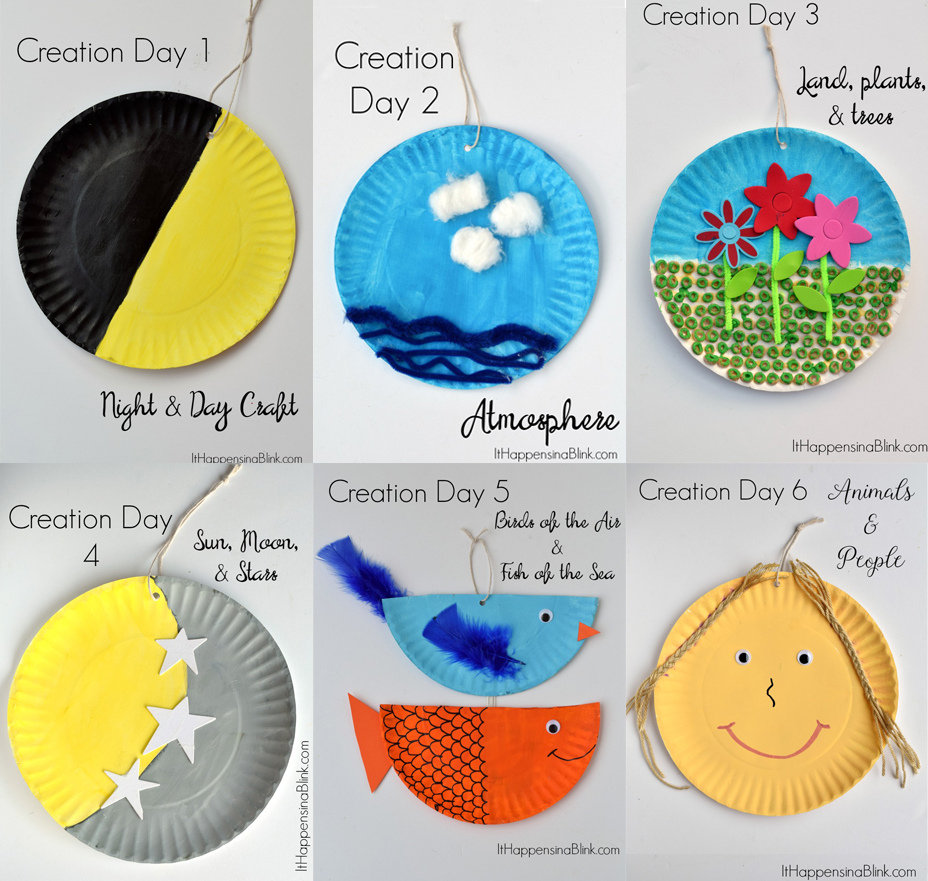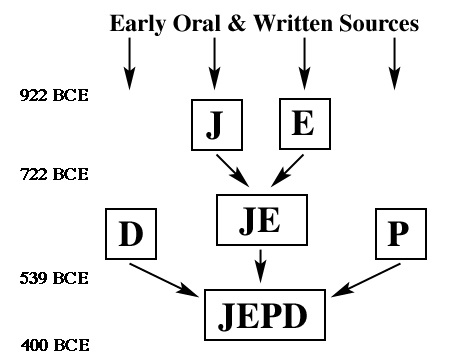“Creation accounts in Genesis Chapter 1 and 2”
When people read “Genesis chapter 1 and 2” and they think that there are two creation stories. According to that, some people say that God created the world two times. Actually, when we look at the bible, it is not about the two times creation. It is just about the different writing styles, scopes, organization, and the different order of creative events.
The two accounts also have differing evaluations of the various stages of creation. Thus Genesis 1 is peppered with statements at multiple stages of the creative process that “God saw that it was good” (Gen 1:4, 10, 12, 18, 21, 25), and ultimately that it was “very good” (Gen 1:31). By way of contrast, at one point in Genesis 2, we find YHWH God saying, “It is not good that the man should be alone” (Gen 2:18); this specifies a plot tension in the narrative that is resolved by the creation of the woman (Gen 2:21–22). We are clearly in a different literary world from Genesis 1.[1]
Genesis 1 describes the creation of the entire cosmos (heaven and earth) over six days, with repetition and patterning, climaxing with God’s rest on the seventh day. By contrast, Genesis 2 (the first chapter of the Garden story) is more straightforwardly a narrative in the formal sense, with a series of tensions and resolutions. And in contrast to the wide-angle view of Genesis 1, which surveys the cosmos as a whole, Genesis 2 zooms in telescopically on humanity on the earth.[2]
[1] https://biologos.org/articles/what-is-the-relationship-between-the-creation-accounts-in-genesis-1-and-2
[2] https://biologos.org/articles/what-is-the-relationship-between-the-creation-accounts-in-genesis-1-and-2

Figure: 1 “https://slideplayer.com/slide/6645974/”

Figure: 2 “http://godlyladies.com/7-days-of-creation-craft-sunday-school”
And we all have to consider about the four main sources such as J, E, P and D. These sources contributed to the first five books of the Hebrew Bible; “Genesis, Exodus, Leviticus, Numbers, and Deuteronomy.”
Briefly stated, the JEDP Source Theory states that the Hebrew Bible (Christian Old Testament) was written by a series of authors writing within 4 literary traditions. These traditions are known as J, E, D, and P.
J (the Jahwist or Jerusalem source) uses YHWH as God's name. This source's interests indicate the writer most likely lived in the southern Kingdom of Judah in the time of the divided Kingdom. The J source is responsible for most of Genesis.
E (the Elohist or Ephraimitic source) uses Elohim ("God") for the divine name until Exodus 3-6, where YHWH is revealed to Moses and to Israel. This source seems to have lived in the northern Kingdom of Israel during the divided Kingdom. E wrote Genesis 22 (the sacrifice of Isaac) story and other parts of Genesis, and much of Exodus and Numbers.
J and E were joined fairly early, apparently after the fall of the Northern Kingdom in 722 BCE. It is often difficult to separate J and E stories that have merged.
D (the Deuteronomist) wrote almost all of Deuteronomy (and probably also Joshua, Judges, Samuel, and Kings). This source would have lived in the southern Kingdom of Judah because the northern kingdom had been overrun and conquered by the Assyrians. Scholars often associate Deuteronomy with the book found by King Josiah in 622 BCE (see 2 Kings 22), but they believe that the time frame of the actual writing of the D material was written as early as Hezekiah's reform.
P (the Priestly source) provided the first chapter of Genesis; the book of Leviticus; and other sections with genealogical information, the priesthood, and worship. For a time frame for these writings, scholars view P as containing materials written prior to the Babylonian exile and during the exile, as well as having some materials written after the exile. Therefore, this source would have lived in the southern Kingdom of Judah, in Babylon, and in Jerusalem after the Babylonian exile.[3]
[3] https://academic.kellogg.edu/marklinl/Bible/Readings/DocumentaryHypothesis.htm

Figure: 3 “J, E, P and D sources”
And then we should note that the creation accounts in Genesis 1 and 2 consistently use different names for God. The first chapter refers to God as the name Elohim and the second one used the title of Yahweh-Elohim. The two accounts also have differing evaluations of the various stages of creation and different literary form.
- Genesis 1 (P source)
- Order (Human last)
- God’s name (Elohim)
- Style (Orderly/technical)
- Divine character (God is in distant. Methodical)
- Genesis 2 (J source)
- Order (Human first)
- God’s name (YHWH)
- Style (Narrative/Dramatic)
- Divine character (God is human-like figure)
Genesis 1 has water first, then land, followed by plants, animals, and finally humans “Adam, consisting in male and female together”. Genesis 2 begins with the existence of land, then comes water, followed by a human “Adam, later specified as a man”, then plants, animals, and finally a woman.
- In Genesis 1, animals come first.
- In Genesis 2, man comes first.
- In Genesis 1, God creates plants first.
- In Genesis 2, the LORD God creates the man first, and then plants.
So that we can see the main differences between the two accounts are; In Genesis 1, focuses on the creation of the earth and in Genesis 2, focuses on the creation of human beings.[4]
[4] https://getrevising.co.uk/grids/comparison-of-the-two-creation-accounts
https://www.christianity.com/wiki/bible/why-are-the-creation-stories-ingenesis-1and-2-different-what-really-happened.html
https://biologos.org/articles/what-is-the-relationship-between-the-creation-accoounts-in-genesis-1-and-2
Here are the similarities and the differences between Genesis Chapter 1 and 2.

Figure: 4 “https://getrevising.co.uk/grids/comparison-of-the-two-creation-accounts”
The main similarities between the two creation accounts are they both state that humans are made in the image of God (Genesis 1:27). They also show that God created a perfect world, "God saw that everything he had made, it was very good" (Genesis 1:31). In both accounts, it shows that God is the creator of everything, "in the beginning God created the heavens and the earth" (Genesis 1:1) "the Lord God made the earth and the heavens" (Genesis 2:4). The main differences between the two accounts are Genesis 1 focuses on the creation of the earth but Genesis 2 focuses on the creation of human beings. Genesis 1 is more formal as it is structured in paragraphs according to each day whereas Genesis 2 is more personal, "every tree of the garden thou mayest freely eat" (Genesis 2:16). Another difference is the order of creation, in Genesis 1, animals were created first (Genesis 1:20-25). However, in Genesis 2, the creation of man is mentioned before the creation of animal life.[5]
[5] https://getrevising.co.uk/grids/comparison-of-the-two-creation-accounts
Are there two creation accounts in the bible? The answer is “No”. And we need to know about the writing styles, emphasis, sources but both chapters refer to the same creation account. Genesis 1 writing style is “orderly or technical” and the source is from “P”. Genesis 2 writing style is “narrative or dramatic” and the source is from “J”. In Genesis 1, Divine character is “Methodical” that means “God is in distant” and in Genesis 2, “God is human-like figure”. Even though the creation orders, God’s name, writing styles and Divine character are different, both chapters refer to the same creation account. That means “there is only one creation account in the bible”.
May God continue to speak to you.
#Titus_KyawNyi
References;
- Holy Bible
- Judson Bible
- King James Version
- New King James Version
- Wikipedia
- https://getrevising.co.uk/grids/comparison-of-the-two-creation-accounts
- https://www.christianity.com/wiki/bible/why-are-the-creation-stories-in-genesis-1-and-2-different-what-really-happened.html
- https://biologos.org/articles/what-is-the-relationship-between-the-creation-accoounts-in-genesis-1-and-2
- https://getrevising.co.uk/grids/comparison-of-the-two-creation-accounts
- https://academic.kellogg.edu/marklinl/Bible/Readings/DocumentaryHypothesis.htm
- https://biologos.org/articles/what-is-the-relationship-between-the-creation-accounts-in-genesis-1-and-2